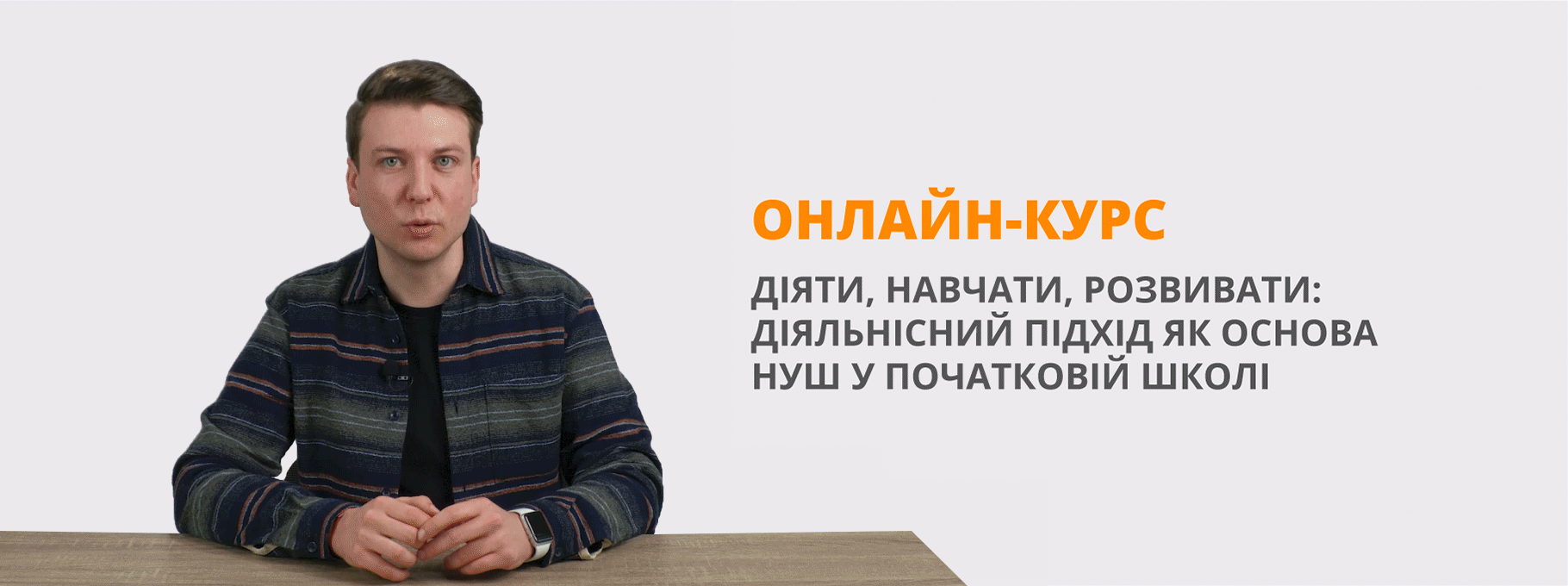Конспект уроку з англійської мови на тему " War and conflict"
 MILITARY VOCABULARY - WORD SEARCH GAME
MILITARY VOCABULARY - WORD SEARCH GAME
Here is a nice word search game worksheet. Find the given words in the word search puzzle below. There are eight possible directions: horizontally, vertically, or diagonally.
|
V |
J |
O |
K |
D |
M |
I |
W |
F |
H |
Z |
A |
H |
W |
J |
A |
|
Q |
K |
|
C |
E |
I |
O |
|
G |
|
L |
|
D |
L |
|
B |
|
W |
U |
A |
Z |
A |
|||||||||||
|
Z |
W |
|
Z |
S |
S |
B |
|
T |
|
L |
|
T |
P |
|
R |
|
N |
A |
T |
E |
G |
|||||||||||
|
R |
F |
|
Z |
T |
S |
F |
|
S |
|
X |
|
A |
Y |
|
M |
|
Y |
X |
A |
E |
D |
|||||||||||
|
V |
L |
|
U |
R |
I |
H |
|
L |
|
C |
|
P |
T |
|
R |
|
B |
E |
I |
O |
E |
|||||||||||
|
F |
L |
|
T |
O |
L |
B |
|
M |
|
G |
|
X |
E |
|
M |
|
D |
O |
B |
O |
S |
|||||||||||
|
N |
A |
|
Y |
Y |
E |
L |
|
F |
|
C |
|
I |
O |
|
G |
|
V |
R |
N |
M |
N |
|||||||||||
|
P |
M |
|
C |
D |
C |
C |
|
K |
|
F |
|
L |
K |
|
A |
|
O |
I |
L |
O |
E |
|||||||||||
|
B |
Q |
|
B |
I |
E |
O |
|
A |
|
H |
|
M |
N |
|
W |
|
I |
Z |
C |
D |
Z |
|||||||||||
|
A |
O |
|
L |
S |
V |
H |
|
M |
|
I |
|
E |
B |
|
O |
|
A |
M |
D |
I |
E |
|||||||||||
|
N |
R |
|
T |
I |
Z |
I |
|
M |
|
K |
|
O |
A |
|
Z |
|
U |
I |
E |
R |
A |
|||||||||||
|
J |
D |
|
N |
W |
T |
S |
|
R |
|
A |
|
P |
T |
|
T |
|
M |
L |
A |
J |
E |
|||||||||||
|
S |
D |
|
Y |
D |
S |
A |
|
I |
|
N |
|
C |
P |
|
N |
|
A |
W |
L |
O |
N |
|||||||||||
|
H |
L |
|
B |
I |
A |
V |
|
N |
|
N |
|
Y |
J |
|
T |
|
H |
R |
A |
D |
E |
|||||||||||
|
I |
G |
|
O |
N |
Z |
R |
|
Y |
|
N |
|
E |
N |
|
G |
|
S |
V |
S |
P |
M |
|||||||||||
|
U |
E |
|
M |
V |
M |
D |
|
B |
|
Z |
|
P |
R |
|
J |
|
N |
Y |
S |
G |
Y |
ARMY, NAVY, BATTLE, BOMB, BOUNDARY, WEAPON, MISSION,
 CIVILIAN, COMBAT, COMMANDER, DESTROY, SOLDIER, ENEMY,
CIVILIAN, COMBAT, COMMANDER, DESTROY, SOLDIER, ENEMY,
WAR, GENERAL, HELICOPTER, MILITARY, MISSILE
www.english-learn-online.com – Learn English vocabulary with free online games, puzzles and quizzes.
Тема уроку: War and conflict
Мета уроку:
- Навчальна: ввести та активізувати новий лексичний матеріал теми, активізувати знання учнів про політичні систему України; розширити знання учнів з історії України ; обговорити роль допомоги Україні іншими державами ;
- Розвиваюча: розвивати навички аудіювання, письма, говоріння; розвивати навички взаємоконтролю та самоконтролю, навички роботи в команді; розвивати в учнів увагу, та мовну здогадку;
- Виховна: виховувати культуру спілкування, почуття поваги до співрозмовника; виховувати почуття патріотизму та національної свідомості;
Тип уроку: комбінований.
Матеріально-технічне та дидактичне забезпечення: комп’ютер, проектор, мультимедійна дошка, презентація, аудіо запис.
Очікувані результати уроку:
Учні знатимуть:
- лексичний матеріал до теми
Учні вмітимуть:
- вживати лексичний матеріал під час мовлення та письма;
- здобувати необхідну інформацію під час аудіювання та читання тексту;
- висловлювати власну думку.
Procedure
1.Greeting
Good morning everybody! Today we’ll speak about the war in general and ,of course, about the war in our country Ukraine . We have already talked a little about it but today we are going to enrich our vocabulary on this topic, to discuss the difficulties our country faces nowadays. We’ll do different interesting tasks and I hope you’ll do your best. So, be ready to work hard and summarize everything at the end of the lesson.
2. Warm-up
T: To start with I would like you to describe the photos of the war in Ukraine What can you see? What do you know about the war? What do you think are the feelings of these people?
(Pupils describe the photos)
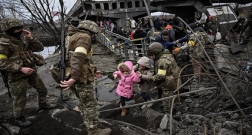
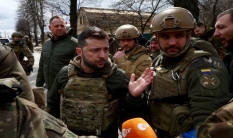
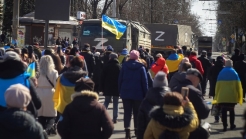
3. Introducing the new vocabulary
T: Well, to speak more fluently we need special vocabulary. Have a look at the board and let’s read the new words and word combinations. (Pupils read the vocabulary and do the task word search)
4. Checking the home task.
T: Your task was using your blogs, Instagram, Facebook, Telegram or any other social media tool to get opinions on war and share your findings with the class. So, do please! (pupils read the opinions)
5. Listening
T: Well done, You coped with this task. And we continue with listening comprehension
.Listen to the audio and be ready to do the listening gap fill.
War is … in the world. I've never experienced it. I've never seen it. I never want to. Just …television is enough. What is war? It's when leaders think they have to be strong so they attack another country and … than soldiers. That's war today. Generals and presidents always …of innocent lives, but… strong man (or woman) is more important than the suffering and misery their …. There are many examples of wars ending or being … through talking. But then talking doesn't feed the war machine. Lots of people get rich when their country ... And we learn in our history books that we are "good" at war, so it's OK.
6. Watching a video and discussing
T: At this part of the lesson we are going to watch the video. Try to understand it and then we’ll answer the main its question (pupils watch the video https://www.facebook.com/100000645458040/videos/492013652405045/
Is Russia really great? , write down the facts about Ukraine and Russia in two groups and then discuss them)
What was the video about?
What new words have you heard? What other interesting facts about Ukraine do you know?
7. Reading
T: You have to read the text and make up questions to it. (pupils make up questions, write down them and ask the class) What is this article about? What’s the main idea of it?
RUSSIA INVADED UKRAINE.WHY DOES THIS MATTER TO THE WORLD?
Today, the largest war in Europe since World War II has been unfolding. Once again the world has to stand against evil, against terror, against genocide. Ukrainians are the ones on the battlefield today, but in a modern globalized world, everyone already is or will be affected by this war. And if the terrorist Russian state would not be stopped now, the whole human history may take a darker path for the decades to come. Since the collapse of the Soviet Union, Russia has continued to harbor significant resentment against Independent Ukraine. Vladimir Putin, along with many Russians, shares a deeply flawed narrative about Ukrainians and Russians being “one nation”, and Ukraine being an essential part of “Historical Russia”. Part of the empire they are trying to restore. Why should you not consider Ukrainians and Russians as “one nation”?
However, Ukraine has chosen a different path over the years – an independent path of democratic development, reform and European integration. Ukraine decided to look into the future rather than be dragged back into the past.
Unwilling to comprehend or respect Ukrainian choice, Russia started its military aggression in 2014, occupied Crimea, and attacked the Donetsk and Luhansk regions. On February 24, 2022, the full-scale invasion began. Russian troops crossed Ukrainian borders to occupy more land, to suppress Ukrainian identity, to destroy independence and democracy itself.
The outcome of this war will determine what path human history is taking from now on. Are we back to the world, where it is possible to invade an independent country – and still have a seat on the table? Where military power is the only argument that matters? Where genocide can be committed without any substantial consequences?
Or are we building a world, where state borders and international laws are respected? Where we favor international partnership and cooperation over armed conflicts? Where countries and nations have a right to determine their own future?
That is what Ukraine is fighting for. Ukrainian victory will be a victory of freedom, democracy, and international partnership over tyranny and terror. And the powerful message to all the people and countries: evil can’t thrive in this world, it would not escape its end or its punishment.
8. Summarizing
T: Today we had an opportunity to listen to different points of view on the subject and to see the attitude of people of different countries towards the war. To sum our work up we’ll answer the questions.
- Which major wars from the history do you know about?
- What causes these wars?
- What are the most common causes of war?
- Which countries have the most powerful militaries? What makes them powerful?
- Which countries have a reputation for being warlike?
- Which wars has your country been involved in?
- Are you concerned about the war in Ukraine?
- Do you ever watch films about war?
- Is war necessary?
- How can war be prevented?
- When can war be justified?
- What do you think about the spread of nuclear weapons?
Evaluating
You were active today. Thank you for your participation.
Home assignment
At home learn the new vocabulary and write your essays. Choose one of the topics. “How has the war influenced the country and the people?” “All people deserve to be safe.” “Civilians should never be targeted.”
T: Wars are the worst things one might face in life...Wars kill hopes and aspirations, freeze or destroy relationships and connections. I wish you always live in peace and safety. See you next time!
Listening
War is the worst thing in the world. I've never experienced it. I've never seen it. I never want to. Just looking at it on television is enough. What is war? It's when leaders think they have to be strong so they attack another country and kill more civilians than soldiers. That's war today. Generals and presidents always apologize for the loss of innocent lives, but their image as a strong man (or woman) is more important than the suffering and misery their decisions lead to. There are many examples of wars ending or being avoided through talking. But then talking doesn't feed the war machine. Lots of people get rich when their country goes to war. And we learn in our history books that we are "good" at war, so it's OK.
Vocabulary
Civilian (also adj. or n.) means someone or something not in the military.
Enemies or opponents are nations or people fighting against a country.
Allies are nations on the same side, supporting each other.
Neutral countries are nations that are not involved on either side.
War is a violent conflict between two or more groups (usually nations).
A battle is a violent encounter between opposing sides, often as part of a larger war.
Combat is periods of actual fighting. (Before antibiotics, more soldiers died of infected wounds than during active combat.)
A coup d’état is a government overthrow, often by the military or a small group of conspirators
To fortify something (a vb.) is to make it strong. Forts are buildings with strong walls. They protect important places against attack.
To guard (a verb: vb.) is to watch over and protect someone or something. A guard (n.) is the person who does that. A sentry is a military guard keeping watch to prevent enemies from entering a camp, fort, etc.
To retreat (n. or vb.) is to withdraw from (leave) an area in an orderly way. Soldiers often retreat after losing a battle to prevent further losses
An attack is violent aggression against a person or country. (The verb is to attack.)
An invasion is when attackers enter the territory of their enemy to take control of it. (To invade is the verb.)
An invading army can besiege (vb.) a fortified city by surrounding it and trying to cut off its supplies. The intention of a siege (the noun) is to weaken the residents enough to overcome their defenses and capture the city.
A naval blockade (n. or vb.) is similar: ships prevent necessary supplies from reaching a city or country. It can be very effective in countries that depend on trade for food and other basic needs, or for weapons and income to keep fighting. During the American Civil War, a blockade of the South cut off needed supplies as well as income. The South had specialized in producing cotton for export rather than diversifying its economy. So it did not produce the weapons, equipment, and in some parts food needed to get by on its own.
To capture (usually vb.) people or cities is take control of them.
An ambush (n. or vb.) is a trap planned to capture or destroy enemy troops. The side planning the ambush hides most of their troops so that their enemies expect an easy victory. When their enemies attack, the hidden troops come out and overwhelm the enemy forces.
Camouflage is clothing or vehicle coverings that blend with surroundings.
Bombs are large explosive devices that can destroy buildings, people, or even large areas of a city. Heavy bombing of a fort or military position is called a bombardment. (Bomb can also be a vb.)
Land mines are buried devices that explode when someone or something puts weight on them.
Missiles are explosive objects sent to blow up their target. They can be self- or remote-controlled and can even be nuclear.
Torpedoes are missiles fired from ships or submarines or dropped from the air. They explode on impact, to damage or sink ships.
To be in war
Fight in war
Win, lose, declare war
Come to power
Seize power
Carry out, launch, lead attack
Mobilise, assemble, create, withdraw force
Word Bank
WAR
Question: Which 5 words below are kinds of weapons?
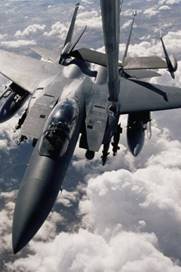 conflict n. O officer n.
conflict n. O officer n.
conquer v. P peace n. conscription n. peaceful adj.
D death n. prisoner of war n. defend v. R recrui t n., v. defense n. S salute n., v. destroy v. shoot v. destruction n. spy n., v.
E enemy n. surrender n., v.
A air force n. enlist v. T tank n. ally n. F fight v. treaty n. ar med forces n. fighter aircraft n. trench n. army n. G general n. troops n. attack v. H hostile adj. U uniform n.
B barbed wire n. I invade v. United Nations n. battle n., v. invasion n. V veteran adj., n. bomb n., v. L leader n. violence n. border M machine gun n. violent adj.
C casualty n. military adj., n. W war crime n. ceasefire n. mine n., v. warfare n. civilian adj., n. N navy n. weap on n. civil war n. negotiate v. World War I n. Cold War n. negotiation n. World War II n. combat adj., n. nuclear war n. wounded adj., n.
Permission granted to reproduce for classroom use. © www.allthingstopics.com
WORD BANK War
|
Aims Supplementary vocabulary building Level Intermediate to Advanced
|
|
ANSWER KEY My Notes
Question: “Which 5 words below are kinds of weapons?” bomb; fighter aircraft; machine gun; mine; tank
|
Permission granted to reproduce for classroom use. © www.allthingstopics.com


про публікацію авторської розробки
Додати розробку
